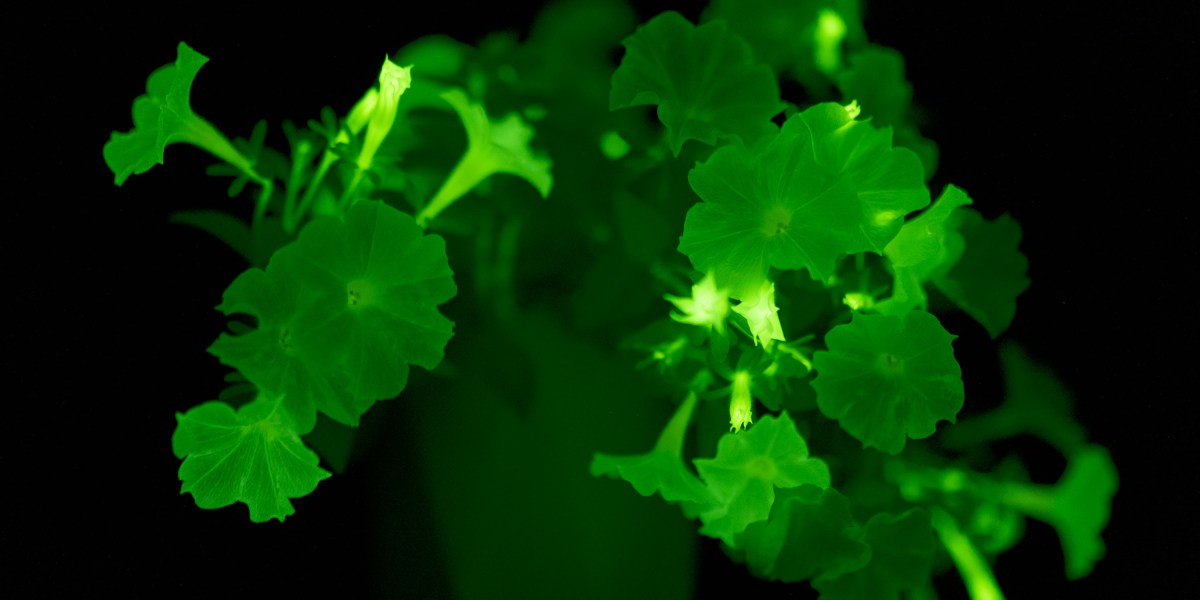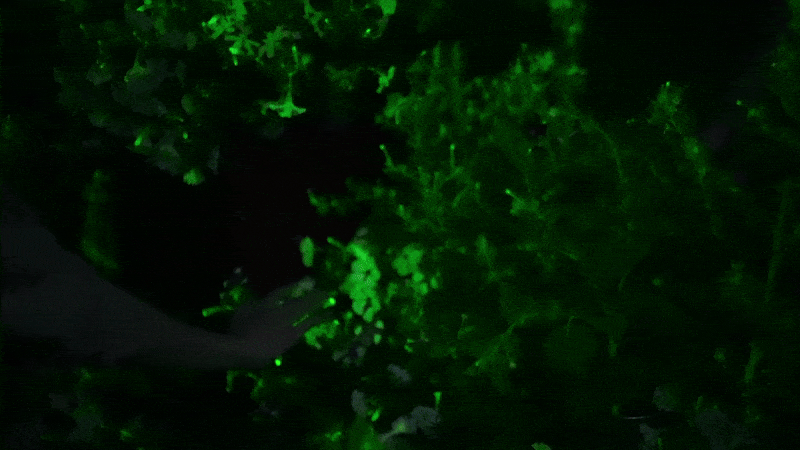Ready, set, grow: These are the biotech plants you can buy now


Biotech seeds have been a huge business for a while. In fact, by sheer mass, GMOs are probably the single most significant product of genetic engineering ever. Except most of us aren’t planting rows of cotton or corn that can resist worms or survive a spritz of RoundUp, the big gene-splicing innovations that companies like Monsanto and Pioneer Hi-Bred first introduced in the 1990s.
What makes these new plants different is that you can buy them directly from their creators and then plant them in the yard, on a balcony, or just in a pot.

NORFOLK HEALTHY PRODUCE
Purple tomato
Starting off my biotech shopping spree, I first spent $20 to order 10 tomato seeds from Norfolk Health Produce, a small company in Davis, California, that created what it calls the Purple Tomato. The seeds have a gene introduced from a snapdragon flower, which adds a nutrient, anthocyanin, that also gives the fruits their striking color.
According to Channa S. Prakash, a geneticist and dean at Tuskegee University, the tomato is the “the first-of-its kind GMO food crop marketed directly to home gardeners.”
The CEO of the company, Nathan Pumplin, was packing seeds when I reached him by phone. He claimed that anthocyanin has health benefits—it’s an antioxidant—but he agreed that the color is a useful sales pitch.
“I don’t need to make a label that says this red tomato is better for you than the other red tomato,” says Pumplin. “We can simply put out the purple tomato, and people say, ‘Oh my gosh, this tomato is purple.’ Its beauty is a distinguishing characteristic that people can just immediately see and understand.”
There is a plan to mass-produce the purple tomatoes for sale in supermarkets. But Pumplin says the company couldn’t ignore thousands of requests from regular gardeners. “It’s not the main focus of our business, but we are very interested in having people grow these at home,” he says. And “if home gardeners want to save the seed and replant it in their gardens for their own use, that is okay.”

LIGHT BIO
Glowing flower
I next decided to shell out for the “firefly petunia,” so called because the plant is supposed to glow in the dark. It’s sold by Light Bio, a startup backed by the venture capital firm NFX .


